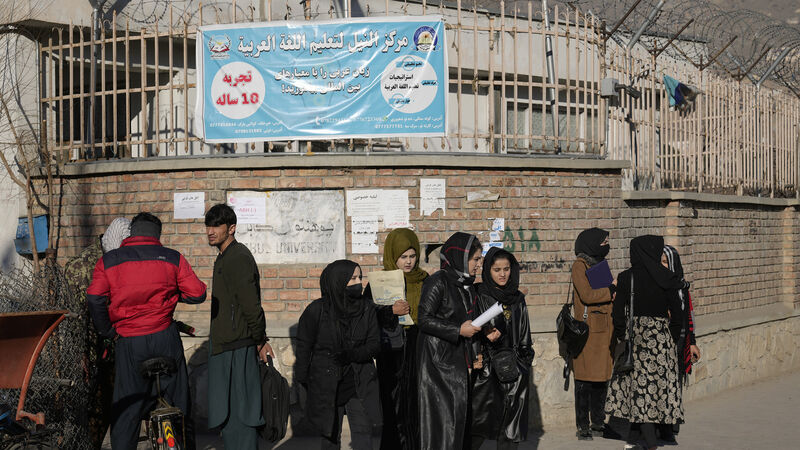'Schools and universities are reopening — but not for girls'

Afghan women students stand outside the Kabul University in Kabul, Afghanistan, in December, after the Taliban banned women from third-level education. Picture: AP/Ebrahim Noroozi
Following the West's withdrawal from Afghanistan in the summer of 2021 and the Taliban’s return to power, the ruling group has progressively curtailed women’s rights, restricting their basic freedoms and denying them access to education.
Despite initial promises by the Taliban that it would be more inclusive and respectful of women’s rights, it has proceeded to deprive them of opportunities to work and learn.










